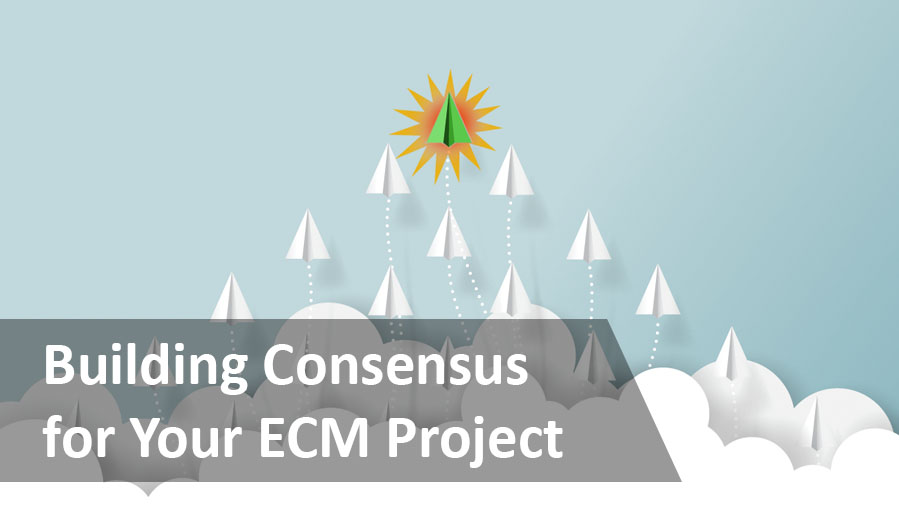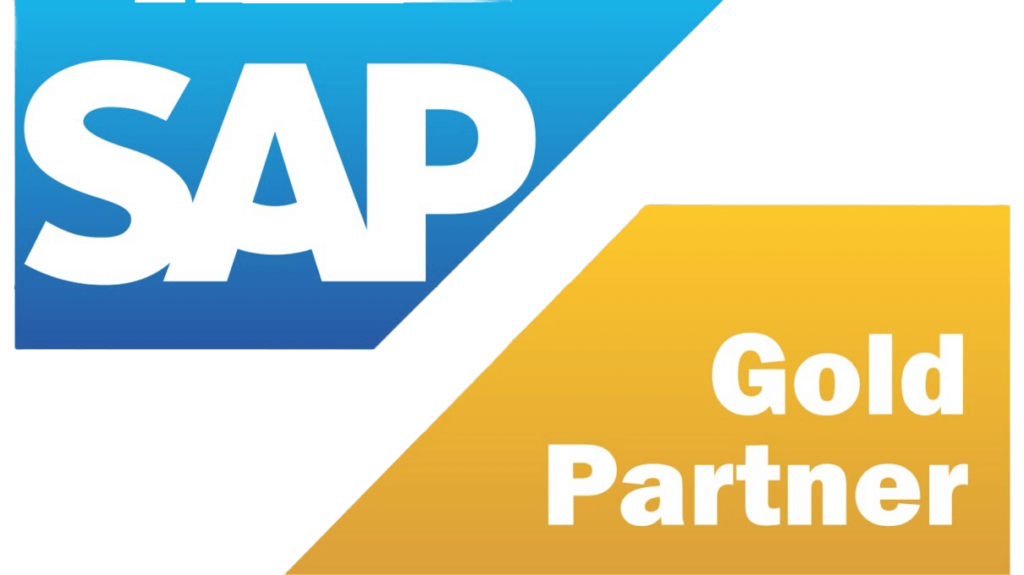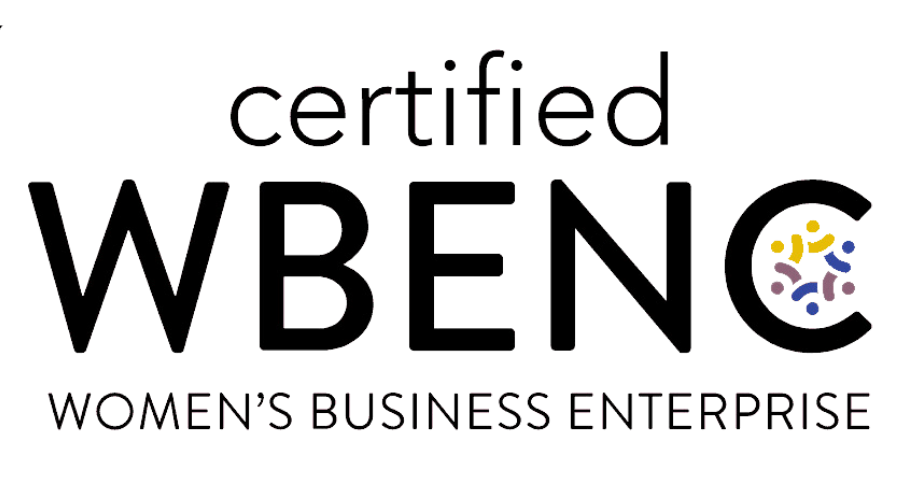Building Consensus for Your ECM Project
Forward thinking companies understand digital transformations are essential to uniting content, data and processes to fully leverage their inherent value and stay competitive. Gone are the days of getting away with siloed information – enterprise content services built upon powerful SAP and OpenText solutions are the future. As complex as enterprise-wide solutions can be, it shouldn’t come as a shock when proposed overhauls of a content management system meet resistance from many sources – no matter how out-of-date that system may be.
Building consensus for an enterprise content management (ECM) or content services project in a large organization is a hard road to walk. Even the clearest idea developed with the best intentions by the brightest minds will meet resistance from departments, supervisors or general naysayers who don’t fully understand the bigger picture. Fortunately, with a strategic approach it’s possible to not only establish widespread consensus, but also to rally support for your project from even the most ardent detractors.
1. Clearly Define Business Perspective and Goals
According to a Forrester study, an incredibly effective way to build consensus on an ECM or content services project (Learn more about ECM’s evolution to content services here) is to frame it within a business context, not an IT context. This creates a more relatable vision that appeals to people across departments.
Instead of describing current problems, start your process by defining how this project contributes and accelerates your businesses success. Clarify your business strategy and goals, define how to measure your success, and frame your initiative as the path to achieve that success.
2. Evaluate Technology
Once you have defined your business goals, you’ll need to identify the strengths and gaps in existing and proposed solutions. Determine what is working, what needs to be updated, and what else is required to achieve success. Consider current requirements as well as how your processes, technology, and mobility needs will evolve, and what are the highest priorities that will provide the best balance of short- and long-term ROI.
At Optima, we provide a variety of Health Checks and Starter Packages that are specifically designed to examine, assess, and prioritize our client’s technology solutions, and recommend strategic roadmaps to maximize the value of their unique environments.
3. Incorporate the Wider Perspective
In 2021, no information lives in isolation. From marketing and sales, through invoice and order management, to delivery and support, the better you connect your content the more value it can provide.
How can your initiative integrate, overlap, and benefit other teams, departments, and initiatives? It is invaluable to create an ECM advisory board that can guide and refine the project scope. These stakeholders will represent the interests of various areas within the company, ensuring the project is aligned with the greater goals of the organization.
Advisory board members often include project managers, business analysts, functional leaders, ECM architects, ECM developers and account/client liaisons. Experienced content services experts like Optima can also provide insights, strategies and best practices proven by the larger business community.
4. Prepare for Change
Change is natural but it can instill fear and barriers to success. Ally with those who are ready for change and strive to understand the perspectives and motivations of those who are change-resistant. Use these perspectives to develop a clear migration strategy that eliminates the mystery and fear of change, and inspires support and encouragement even during difficult project phases and inevitable unexpected obstacles.
With focused attention on each of these steps, you will have the essential elements to build, win and maintain support for your content services initiative with the variety of stakeholders that will be involved.
An Essential Role: Your ECM Project Needs an Executive Sponsor
Even in brief, the above steps describe a lot of coordination and agreement. To make this happen, you need an active and involved senior-level executive sponsor who is willing to dedicate the time and resources to shepherd such a complex undertaking. Ideally, the executive sponsor should be someone with an interest in technology solutions and an understanding of how digital transformations can fast-track business goals.
Why Executive Sponsorship Is Important
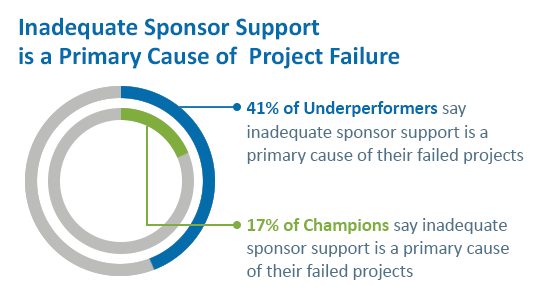 The engagement of an executive sponsor in this type of project is essential to increase the likelihood of your enterprise content services project’s success. According to a 2018 PMI Pulse of the Profession report, poor sponsor support is a leading cause of failed projects.
The engagement of an executive sponsor in this type of project is essential to increase the likelihood of your enterprise content services project’s success. According to a 2018 PMI Pulse of the Profession report, poor sponsor support is a leading cause of failed projects.
As a leader of the advisory team, they should concentrate more on building the conceptual foundations for success than on implementing tactical steps. They will be responsible for widening the framing of an ECM project, taking it out of IT and positioning it as a value-add for everyone within the company. To be an effective executive sponsor, it’s important to:
- Continually frame the project in the overarching goals of the organization
- Internally market and promote the ECM project to other executive-level colleagues
- Consult with Human Resources and department directors to allocate resources as needed and available
- Act as the figurehead of the project, which includes internal PR and promotion, change management, and conflict resolution
This is vital to foster consensus and support for a digital transformation that will require extensive planning, corporate goal alignment, change management and – perhaps most of all – support across multiple teams, departments and business units.
Building Consensus Beyond ECM
This strategy isn’t confined to just content services projects-it is vital for a sponsor to build consensus and shepherd any innovation project that will impact a company’s operations. An example Optima has been experiencing recently is centered on initiating company-wide SAP S/4HANA projects. Firms already based in SAP are evaluating their options for migrating to S/4HANA before the coming deadline, while non-SAP customers are considering how to get the most benefit as they implement S/4HANA solutions from scratch. An executive sponsor is key for a large implementation like this, and often benefits from a larger advisory board as described above to lead teams and maintain enterprise consensus.
Our recommendation that we use to launch successful projects is to start with the holistic benefits of an SAP S/4HANA migration or implementation. High-level selling points involve company-wide:
- Automation that eliminates repetitive manual processes
- Simplification of processes for more efficient execution
- Reduction in manpower and/or increased task capacity
- High efficiency and lower continued system maintenance
By connecting these benefits with established business goals, the foundation is set. The next step is to emphasize the value of starting now. A few persuasive arguments include:
- Starting now allows the company to leverage a longer timeline, migrating in strategic phases with flexible scheduling of resources.
- It is easier to allocate multiple smaller project investments than invest in one massive capital investment.
- Resource and staff disruption can be strategically planned and managed.
- With more time for strategic planning, the organization can develop a holistic solution with long term improvements across departments instead of a rushed replication of existing functionality.
As the project journey continues, define the components of the SAP S/4HANA (or other SAP complementary solutions) in a similar way to the ECM approach: What is working, what is needed, and what are the priorities. To help clarify these questions, Optima often takes advantage of SAP Business Process Intelligence (powered by Process Mining by Signavio) to identify the differences between “planned process flow”, best practices, and “the real process flow” that is used every day. These three rarely match, and frequently contain the root causes of common challenges and bottlenecks.
It’s clear that any large initiative like an SAP S/4HANA implementation or even a migration will be a challenge and cause some disruption, but with effective sponsorship, vision, and planning, it can accelerate a company’s success and growth, and be a productive step forward in the journey to become an intelligent enterprise.
Successful Projects Begin with a Roadmap
Effective content services and especially flexible cloud-based content service platforms are key to extracting the value from the massive quantities of data and documents businesses generate every day. The next step for businesses that want to remain successful is to define a clear digital content strategy to maximize the value of their current environment while they transition to next generation solutions. A successful digital content services strategy is structured around three tent poles:
- An understanding of your current environment and business goal
- A roadmap that aligns with technological and business goals
- A scalable infrastructure that maximizes the value of your current investment
To support your success, Optima offers a DCS Health Check, a low cost, comprehensive system evaluation designed to bring all of your companies content services elements into focus. The Health Check makes it clear which direction you need to go, which resources you need to build or optimize, and what the end-goal and benefit of your organization will be.

Optima’s proprietary DCS Health Check is a low-cost, comprehensive evaluation of your current technical and functional environment. In this high-ROI engagement, our experienced Optima team will help you understand your current environment, diagnose immediate problems or potential pitfalls, and establish the foundational knowledge to build a scalable strategy designed to accelerate your growth and eventual transition to S/4HANA.
Learn more about our DCS Health Check below and see how it is a vital first step to take advantage of the powerful services, tools, and strategies offered through experienced SAP partners. Contact us to schedule a no-cost discovery session to discuss your current environment, challenges, and goals.

